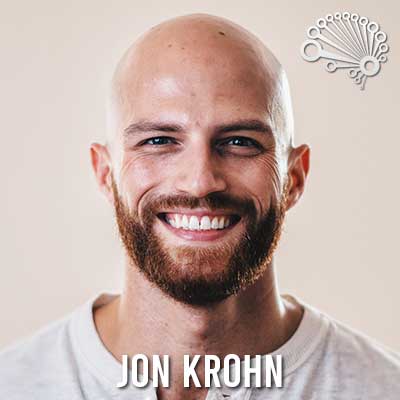(00:06):
This is Five-Minute Friday, on my Five Keys to Success.
(00:19):
Last week, I hit my first-ever 400-pound deadlift. If you wanna see the lift in a pretty cool slow-motion clip, you can check out the video version of this SuperDataScience episode on YouTube.
(00:30):
I’ve been weightlifting for over 20 years and I’ve never come close to a 400-pound deadlift before. My previous best attempt was 40 pounds lower and that was just three weeks ago, while my previous best attempt before that was only 315 pounds — 90 pounds less! — and that was in December of 2019.
(00:48):
What makes this feat even crazier is that, despite having been weightlifting for 20 years, I had to stop lifting weight entirely for most of 2020 during the pandemic lockdowns because gyms in New York were closed. I’ve only been weightlifting again for six months and so starting from almost-scratch just six months ago, I’m far exceeding my fitness capacity across not only the deadlift but a broad range of other movements as well that I’d previously been building up to for decades.
(01:19):
On top of the weightlifting feat, in professional aspects of my life, I’m producing far more than ever before. For example, I’m now creating two podcast episodes per week since taking over as host of the SuperDataScience show on January 1st. Last year, I created only four podcast episodes on my own. So went from four to over a hundred episodes in just a year. Likewise, I’m currently producing two free YouTube videos per week on the mathematical foundations of machine learning. Last year, I published only about a dozen videos over the entire year. So again, a jump of many, many times. I’m also on top of that managing a larger data science team than ever before and successfully executing on a more ambitious data science R&D roadmap.
(02:07):
All right, so back to the weight lifting because reflecting on the 400-pound deadlift as a particularly remarkable quantitative achievement relative to my decades of previous weightlifting benchmarks, I identified five specific keys to success that I believe apply to essentially any challenging, long-term goal.
(02:28):
The first is to seek expert guidance to strategize on a plan (for fitness, I use a brilliant programming by an expert named Marcus Filly, specifically his Persist Classic programming. The second key is to rigorously log data while adhering consistently to the plan. As example of ways to do this, I use habit-tracking spreadsheets which were espoused by my friends James Clear and Konrad Kopczynski. You can listen to episodes 442 and 465 for details on these data logging approaches.
(03:04):
Key number three is to focus. For example, no phone notifications and no switching between tasks when you are focused on the important task. To help me stay on track with both my habits and my mind, I have a daily mindfulness practice. So I use a program called Headspace for guidance while I meditate and a headband called Muse for biofeedback while meditating. You can listen to episodes 434 and 436 of the SuperDataScience show for details on both of those things.
(03:37):
Key number four is getting lots of sleep. This I think is something you can just track by kind of looking at the clock when you go to bed and when you wake up and writing it down say in a habit -tracking spreadsheet. I personally use a device called WHOOP to track and also provide me with rest and workout intensity suggestions.
(03:59):
Finally, key five is to have a clean diet. This might sound like something that’s very specific to fitness, but I think that having a clean diet makes it easier to have more hours of focused and hard work on anything in any given day. So I think that this is very important across all kinds of goals. Personally, I subscribe to a meal plan to make adhering to a clean, portion-controlled diet easy and on top of that I can count on two hands the alcohol servings I’ve consumed in the past year.
(04:33):
All right, so reviewing those five key steps to achieving any long-term goal it’s, one, seeking expert guidance to strategize on a plan; two, rigorously logging data while adhering consistently to the plan; three is focus; four is get lots of sleep; and five is have a clean diet.
(04:55):
While the specific examples in this episode have centered around fitness, I am confident these five keys extend to any challenging long-term goal, be it in your personal or your professional life. If any of these keys sound right to you, perhaps consider giving them a shot to get where you’re looking to be in your own life. All right?
(05:13):
All right. That’s it for today’s episode. Thanks for listening and I’m looking forward to another round of the SuperDataScience show with you very soon.



